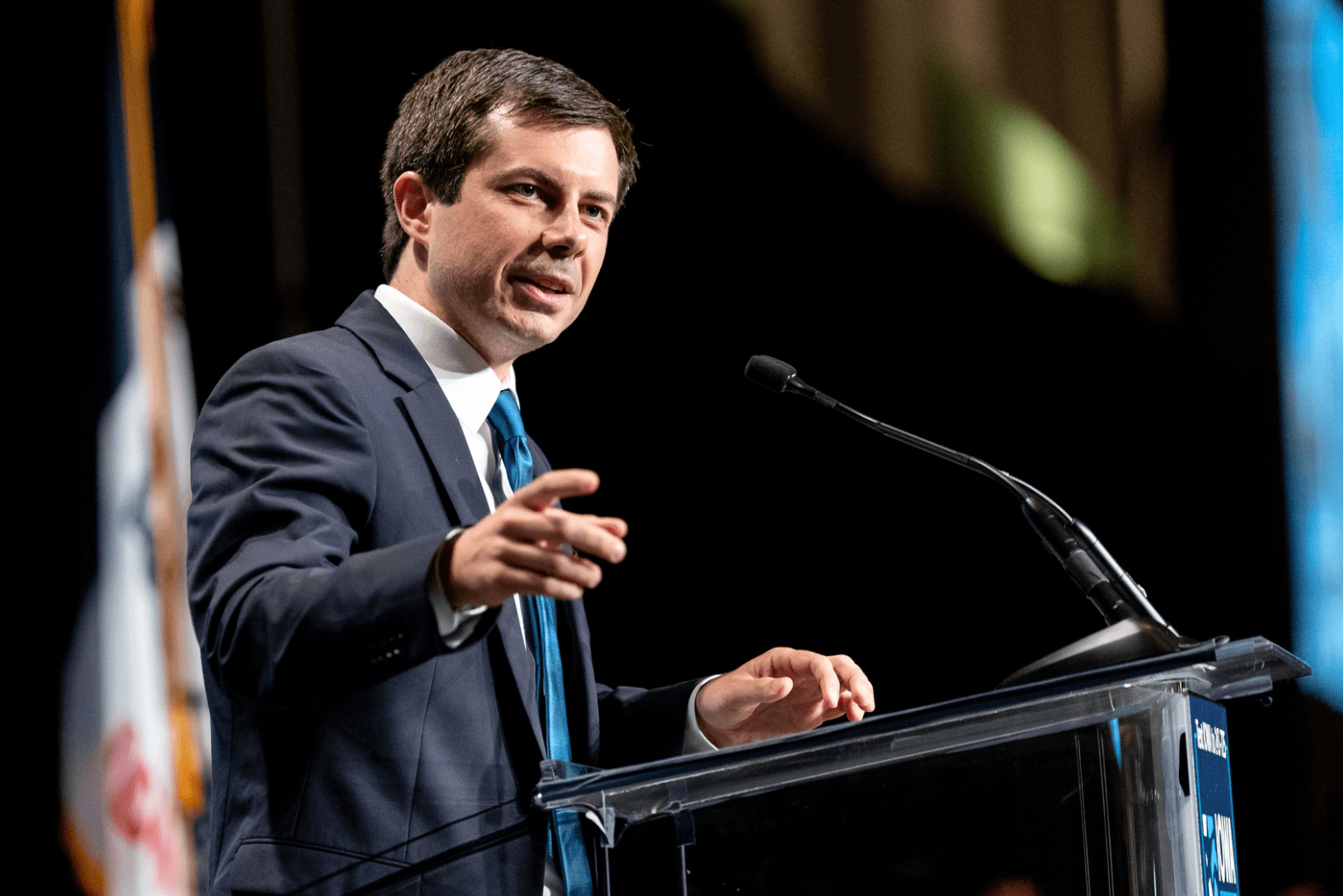U.S. Department of Transportation Secretary Pete Buttigieg will reportedly take a conciliatory tone at a Senate hearing on Wednesday, telling a key committee that he wants to be a good partner with states that have nonetheless rejected the Biden administration's equity agenda on transportation funding.
Buttigieg's prepared remarks for Wednesday's hearing of the Environment and Public Works include a line that will dishearten supporters of the White House's push to use federal infrastructure as a carrot to get states to undo decades of institutional racism — an agenda that a group of GOP governors and Sen. Mitch McConnell have attacked.
"With regard to federal-aid highway funding," Buttigieg's prepared remarks say, according to Reuters, which got the scoop on Tuesday, "I want to pause and emphasize the importance of the relationship between my department and our state partners, because I know that has been of particular interest to members of this Committee. I want to make clear that we recognize and value the role of the states in deciding how to prioritize the use of formula dollars, as laid out in the law."
New: @Reuters obtains @SecretaryPete written testimony for tomorrow’s @EPWCmte @EPWGOP hearing https://t.co/3qInT0dYd3 pic.twitter.com/BF5GvOPuAS
— David Shepardson (@davidshepardson) March 1, 2022
Buttigieg's comments were quickly seen as foolishly middle-of-the-road in an era of catastrophic challenges to the nation.
"[It means] the administration will give carte blanche to states to expand roads, despite their horrific environmental & social effects," tweeted Yonah Freemark of the Urban Institute. "For those responding that DOT has not, in fact, given a carte blanche to states: I'm waiting for evidence. DOT has yet to develop a policy that actually inhibits road construction. Conflicts over environmental impacts of certain projects (eg. Houston) are not the same as policy."
The comments are likely to be seen as an effort to play nice for GOP lawmakers, who have consistently attacked the Biden infrastructure agenda, as demonstrated in federal guidelines issued late last year. In a memo that represented a clear break from the past, new Federal Highway Administration guidelines encourage state highway authorities to invest in climate- and equity-friendly projects that improve safety and accessibility for multi-modal road users, while simultaneously prioritizing repair over new construction.
In January, a group of 16 Republican governors told the White House that “excessive consideration of equity, union memberships or climate as lenses to view suitable projects would be counterproductive.
“Your administration should not attempt to push a social agenda through hard infrastructure investments and instead should consider economically sound principles that align with state priorities," the governors' letter continued.
A few weeks later, Senate Minority Leader McConnell and Sen. Shelley Moore Capito, the ranking Republican on the Environment committee, basically told state leaders to ignore the Biden guidelines. And, of course, there is a limit to what the federal government can demand when it comes to state's use of grant money; the Federal Highway Administration guidelines are, in fact, advisories that are not legally binding, as Jeff Davis of the Eno Center for Transportation pointed out in a tweet.
The ability of @USDOT to establish criterion for project approval beyond what is written in law is arguably limited by section 145 of title 23, the wording of which has not been amended since it was enacted in 1973: pic.twitter.com/VGXdPHPcUl
— Jeff Davis (@JDwithTW) March 1, 2022
If Buttigieg is taking a conciliatory approach to the issue, it's a new approach. Before he was even sworn in, Buttigieg said in December, 2020, that the Biden team would use the power of the purse to target systemic racism. "It’s disproportionately Black and brown neighborhoods that were divided by highway projects plowing through them because they didn’t have the political capital to resist,” Buttigieg told CNN. “We have a chance to get that right.”
States are poised to receive more than $150 billion in road funding as part of the bipartisan Infrastructure Investment and Jobs Act, funds that, traditionally, would have carried virtually no federal strings attached on how states spent it.
The USDOT declined to comment on the secretary's testimony.






